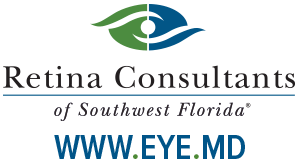Quality of life for individuals can improve even with low vision
Originally Published in the News-Press on 7/30/2013
In spite of the best of eye care, some patients still experience life-altering vision loss.
Too often, these patients are told nothing can be done. While this may be true in terms of medical or surgical treatment to improve vision, it is not true in terms of their lives.
Most patients have more visual capacity than they realize. A low vision rehabilitation specialist can evaluate how much good vision a patient still has and teach them the most effective ways to use it.
Low vision rehabilitation can also help you learn new ays to do daily tasks. Some examples:
- Sorting medications into weekly pill boxes.
- Learning new ways to cook safely.
- Using electronic devices to magnify print.
- Listening to audio rather than read books.
- Exploring the use of large-print books and e-readers.
Another important consideration when trying to complete fine detail tasks or reading is lighting. Some people require intense bright light while others require much more subdued levels. Light should be aimed at the task at hand, not at the eyes. The light should come over the shoulder of the better eye.
Colors and contrast can be enhanced at home to make tasks easier. For example, patients may benefit from colored soap and towels that stand out from the tub and tile in the bathroom.
A home safety evaluation can identify hazards that may contribute to falls and injuries, such as electrical cords crossing walkways and staircases without handrails or adequate lighting.
Some questions to ask a visually impaired person might include:
- How are you managing to write checks, pay bills, or balance your accounts?
- How has your vision loss affected your job?
- How has your vision loss affected your leisure time or activities?
- Are you able to do any pleasure reading?
- Are you able to read and manage your mail?
- What visual activities do you miss?
These specific questions will help you to determine if low vision aids would be helpful to you or your loved one. People with low vision can still enjoy a range of activities, independence, and an improved quality of life.
